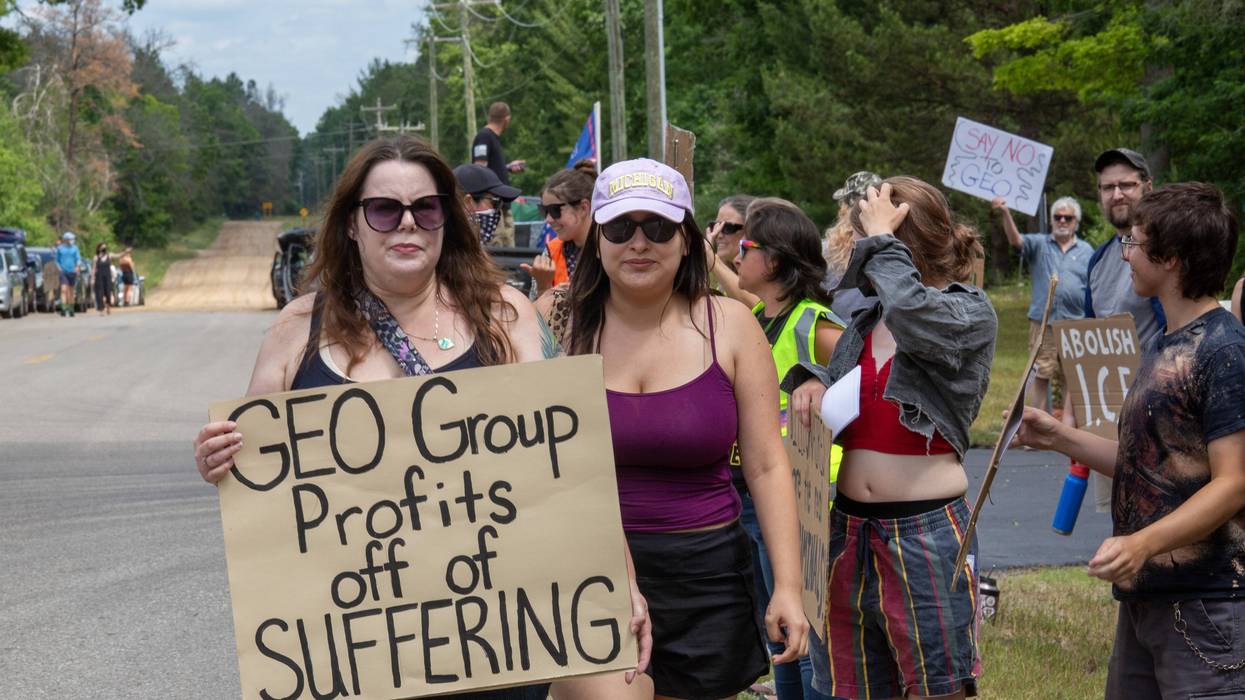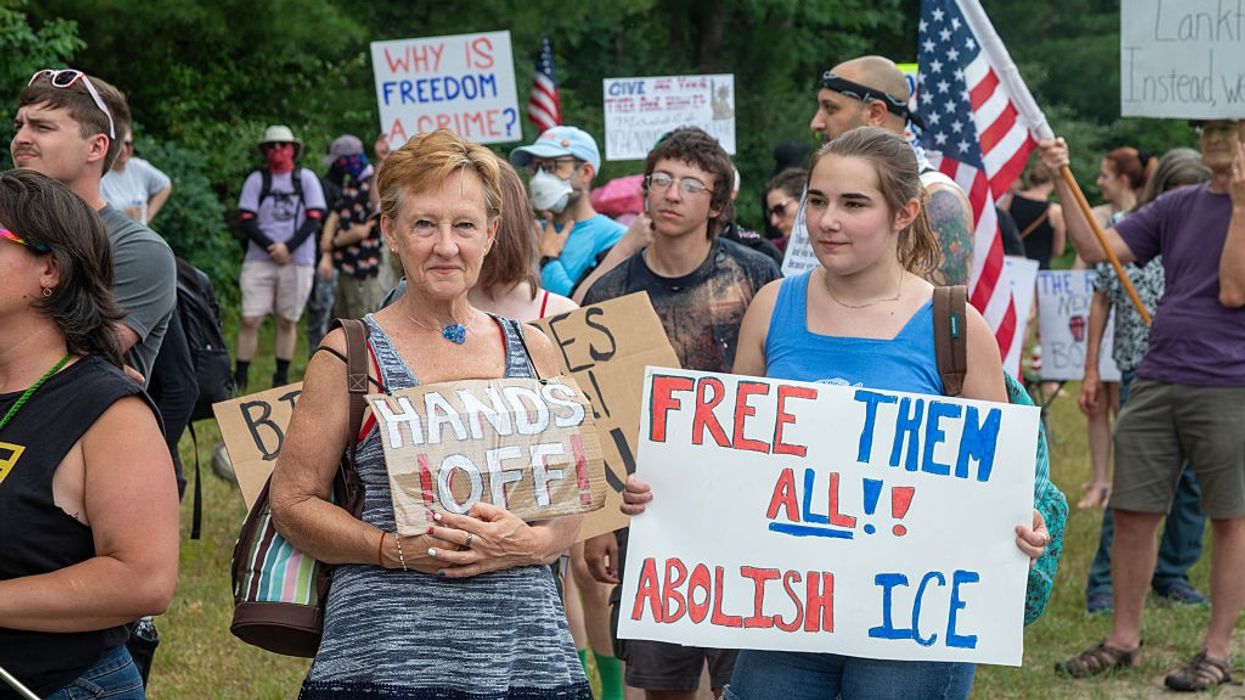Private Prison Firm GEO Group Reports Record $254 Million Profit After New ICE Contracts
"Trump’s donors are making money from this violent separation of our immigrant families," said Rep. Rashida Tlaib. "This is corruption."
Private prison company GEO Group on Thursday reported a company record of $254 million in profit last year—a roughly 700% increase over 2024—driven by asset sales and contracts with the Trump administration to build several new US Immigration and Customs Enforcement detention facilities across the US.
GEO Group secured approximately $520 million in new or expanded contracts in 2025, based on annualized revenue, according to company founder and executive chairman George Zoley.
"This represents the largest amount of new business we have won in a single year in our company's history," Zoley said during an earnings call on Thursday. "We have entered into new contracts to house ICE detainees at four facilities totaling approximately 6,000 beds."
Those facilities are: Delaney Hall in Newark, New Jersey; North Lake Processing Center in Baldwin, Michigan; Folkston Processing Center at the D. Ray James Correctional Institution in Georgia; and a so-called "deportation depot" at the Baker Correctional Institution in Sanderson, Florida.
"The census across our active ICE facilities has continued to steadily increase from the third quarter at approximately 22,000 to presently approximately 24,000, which is the highest level of ICE populations we have ever had," Zoley said. "This past year, we also significantly expanded the delivery of our secure transportation services on behalf of both ICE and the US Marshals Service, valued at approximately $60 million in incremental annualized revenue."
"We continue to be optimistic about the importance and growth potential of the ICE contract," he added. "The new two-year contract includes pricing for 361,000 participants in year one and 465,000 participants in year two. With the capital investment we made in 2025, we believe we have the capability in scaling monitoring devices and case management services to achieve those significantly increased participation levels and far beyond if desired by ICE."
The so-called One Big Beautiful Bill Act signed last July by President Donald Trump contained a massive increase in funding for the Department of Homeland Security (DHS), ICE's parent agency, including about $45 billion for expanding immigrant detention capacity.
Days after Trump's 2024 reelection—which private prison companies funded to the tune of over $1 million—Zoley hailed the "unprecedented opportunity" of the incoming administration's mass deportation campaign.
“The GEO Group was built for this unique moment in our company’s [and] country’s history, and the opportunity that it will bring,” he beamed.
Unlike state prisons or county and local jails, which are accountable to oversight agencies, privately operated ICE detention centers are not subject to state regulation or inspection. These facilities are plagued by a history of abuse, often sexual in nature, and sometimes alleged deadly medical neglect—problems that carried over from previous administrations.
Thirty-two people died in ICE custody last year, the agency's deadliest in two decades. Most of these deaths reportedly occurred in privately operated detention centers, and 10 immigrants died in GEO Group facilities, according to data collected by attorney and independent journalist Andrew Free.
GEO Group's earnings call came just days after three detainees at one of the company's facilities in Washington state filed a lawsuit accusing two guards there of sexually assaulting and beating them, and then trying to cover it up. The company has been previously sued for alleged inadequate medical care, wrongful deaths, and forced labor.
This, in a system in which immigrant detention is meant to be nonpunitive and in which only a tiny fraction of those detained have been charged or convicted of any violent crime, according to a leaked DHS document exposed earlier this week.
Another private prison company, CoreCivic, on Thursday reported $116.5 million in 2025 profits, a nearly 70% increase from the previous year. The operator of ICE facilities including the notorious Dilley Immigration Processing Center in Texas—which detainees describe as a measles-infested "living hell" where they’ve been served moldy food full of worms and forced to drink putrid water—said it expects 2026 to be even more profitable.
Some private prison investors expressed frustration that ICE isn't jailing enough people to generate even more revenue.
"One of the big questions, I think... has been the pace of detention by ICE, that it's been below what people... thought [it] was going to be," Joseph Gomes of NOBLE Capital Markets, Inc. said on Thursday's CoreCivic earnings call. "I think... people thought we'd be at that 100,000 level. We're at... a little over 70,000."


